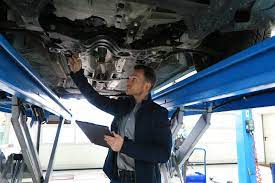In the bustling world of automotive transactions, the role of a kfz gutachter neu wulmstorf appraiser stands as a crucial pillar ensuring fairness, accuracy, and safety. Whether in the context of selling, buying, insurance claims, or legal matters, the expertise of these professionals becomes indispensable. This article delves into the significance, responsibilities, and qualifications of a vehicle appraiser, shedding light on their pivotal role in the automotive industry.
Understanding the Role:
A vehicle appraiser is tasked with evaluating the worth of automobiles, considering various factors such as condition, age, mileage, market trends, and any modifications or damages. Their assessments are not only about determining monetary value but also about ensuring the safety and roadworthiness of vehicles. Whether it’s a classic car, a modern sedan, a luxury SUV, or a commercial vehicle, appraisers bring their expertise to provide accurate valuations.
Responsibilities:
- Evaluation: Appraisers meticulously inspect vehicles, examining both exterior and interior components to assess their condition and any potential defects.
- Research: They stay updated with market trends, recent sales data, and industry standards to provide fair and up-to-date valuations.
- Documentation: Detailed reports outlining the appraisal process, findings, and conclusions are prepared to support their assessments.
- Communication: Effective communication with clients, whether individuals, dealerships, insurance companies, or legal entities, is essential to clarify assessment results and address any concerns.
Qualifications:
Becoming a vehicle appraiser requires a combination of education, training, and experience. While specific requirements may vary depending on jurisdiction and employer, common qualifications include:
- Education: A degree or certification in automotive technology, engineering, or a related field provides foundational knowledge.
- Licensing: Many jurisdictions require appraisers to obtain a license or certification, demonstrating their competency and adherence to ethical standards.
- Experience: Practical experience in automotive repair, sales, or appraisal work enhances skills and understanding of vehicle mechanics and market dynamics.
- Continuing Education: Given the evolving nature of automotive technology and market trends, appraisers often engage in ongoing training and professional development to stay abreast of industry changes.
Significance:
The role of a vehicle appraiser extends beyond mere valuation; it contributes to transparency, fairness, and safety in automotive transactions. By providing accurate assessments, appraisers facilitate informed decision-making, mitigate disputes, and ensure that vehicles meet regulatory standards. Whether it’s determining the value of a vintage collectible or assessing the damage in an insurance claim, their expertise plays a vital role in maintaining the integrity of the automotive industry.
Conclusion:
In the intricate web of automotive transactions, the role of a vehicle appraiser emerges as a beacon of integrity and expertise. Their meticulous evaluations, grounded in knowledge, experience, and ethical standards, safeguard the interests of buyers, sellers, insurers, and the public. As technology advances and market dynamics evolve, the need for skilled appraisers remains paramount, underscoring their indispensable contribution to the automotive ecosystem.

